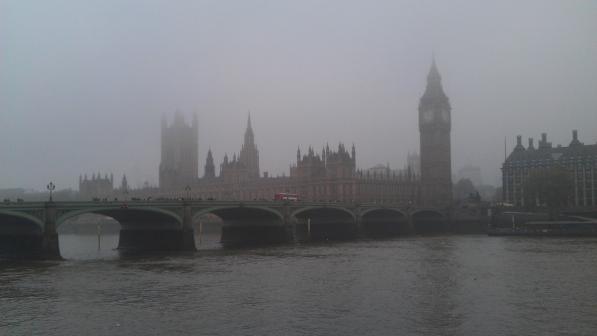High Court ruling on clean air means we need Space for Cycling now

On Wednesday it was announced that ClientEarth won its High Court case against the Government over their failure to tackle illegal air pollution across the UK.
The ruling found that the Government’s current plans to tackle air quality were so poor, they were in fact illegal. The Government is now required to rethink its strategy.
The verdict is a damning indictment of current policy towards air pollution. The UK has routinely failed to meet regulations on nitrogen dioxide emissions and the country’s poor air quality causes roughly 40,000 premature deaths per year. It is time to address this issue head-on.
Unsurprisingly, transport has been at the very centre of the verdict. However, before the Government can even start making plans, the narrative on how transport policy must address air pollution has been set. James Thornton, CEO of ClientEarth, has said, “The Government will have to be tougher on diesel”. Alan Andrews, a lawyer for ClientEarth, added, “Charges would be the most effective way of [removing diesel vehicles from the UK’s roads]’.
The Mayor of London, Sadiq Khan, announced earlier this year he will introduce a £10 daily “toxicity charge” next year in the capital’s congestion charging zone on motor vehicles made before 2005. The levy will extend by the end of the decade to all pre-2015 diesel vehicles. Similar policies could be rolled out in city centres nationwide as part of the Government’s Clean Air Zones initiative.
ClientEarth has also called for a diesel vehicle scrappage scheme, whereby the Government offers cash incentives or subsidies to people who scrap their diesel vehicle.
Diesel vehicles account for just under 40% of licenced motor vehicles in the UK, a proportion that has risen annually. As the biggest emitters of nitrogen dioxide particulates by a substantial margin, this is a problem cannot be ignored.
Tougher policies on diesel are imperative. However, there is a golden opportunity that is being missed here. Levies in any form are generally unpopular and flat-rate taxes on old vehicles will disproportionately affect the poor and the elderly. In addition, scrappage schemes are costly to the state.
Moreover, shifting people from diesel vehicles to petrol vehicles may reduce nitrogen dioxide levels but will increase emissions of carbon dioxide. Carbon dioxide, though not harmful to health in the same way, has a far greater impact than diesel on issues like global climate change. And while zero emissions vehicles may be available, their widespread adoption will take a long time and making them zero-carbon a lot harder still. Meanwhile the nation’s health, and that of our streets and communities, is still suffering: from congestion, road danger and physical inactivity as well as from foul air.
Cycling UK hopes ClientEarth’s victory will act as a wake-up call to Government that it needs to stop dithering on dirty air, and address its root causes, such as motor traffic."
"Government should rebalance its spending on roads towards its long-awaited Cycling and Walking Investment Strategy, so it can fulfil its ambition to normalise cycling for shorter day-to-day journeys"
Roger Geffen MBE, Policy Director
Surely the most cost effective and least politically daring policy for the Government to pursue - in addition to tough policies on diesel - would be to roll out comprehensive networks of safe Space for Cycling. Shifting people from cars onto cycles will have the greatest benefit for tackling both air pollution and climate change. And for this to happen, we must create environments that people feel safe to cycle in.
The Government is set to spend £15 billion on roads over the next four years. Meanwhile, cycling and walking combined are set to receive just £300million of Government funding. By 2020/21, this amounts to 72p per head for residents outside of London, as compared to £84 for trunk roads and motorways. Some re-allocation of funding is necessary if the Government is truly serious about tackling air quality.
In addition, Clean Air Zones should include, as standard, the building of comprehensive networks of cycle-friendly routes. Prior to the ClientEarth ruling, the Department for Environment, Food and Rural Affairs (Defra) were planning on rolling out just five of these schemes. We need many more.
Jeff Smith, MP for Manchester Withington, has already called for a Clean Air Zone in Manchester. With mayoral elections in Manchester next May and devolution deals currently being negotiated elsewhere, Clean Air Zones with a Space for Cycling focus must become a central tenet of any new mayor's policy.
Space for Cycling is a campaign to create the conditions where anyone can cycle anywhere. We currently have a series of Space for Cycling workshops taking place around the country - come along to learn about how you can get involved and get training in some of the many tools that exist to help you campaign!


